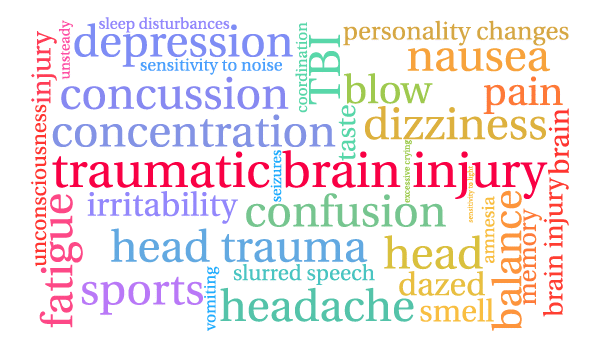What You Need to Know About Traumatic Brain Injuries (TBI)
Traumatic brain injuries (TBIs) are a major cause of death and disability in the US, contributing to about 30% of all injury-related deaths. They are far more common than many people realize, and the effects can last as little as a few days or as long as a lifetime. Effects of TBIs include impaired memory, impaired thinking and movement, impaired sensation such as hearing and sight, and personality changes and depression. TBIs can be caused by a number of things, sometimes self-inflicted injury through activities like sports, but are often the result of an accident, like car accidents and slip and fall accidents. The effects of traumatic brain injuries not only have lasting effects on the individual suffering from the injury, but their families and communities as well.
What is a Traumatic Brain Injury?
A traumatic brain injury is defined by the CDC as “a disruption in the normal function of the brain that can be caused by a bump, blow or jolt to the head, or a penetrating head injury.” TBIs can result in permanent neurobiological damage and produce lifelong effects. A mild TBI typically results in a loss of consciousness for 20 minutes to 6 hours, whereas severe TBIs are the result of a loss of consciousness for more than 6 hours.
Symptoms of TBIs
Symptoms of traumatic brain injuries are broken down into three groups: physical, cognitive (intellectual/thinking), and emotional. Symptoms of TBIs ranging from mild to severe include the following:
Physical
- Loss of consciousness
- Feeling dazed, disoriented or confused
- Headache
- Nausea/vomiting
- Fatigue
- Speech difficulties
- Difficulty sleeping or sleeping more than usual
- Dizziness
- Blurred vision, ringing ears, inability to smell, sensitivity to light and sound, a bad taste in the mouth
- Dilation of pupils
- Clear fluids draining the nose or ears
- Weakness and numbness in fingers and toes
- Seizures or convulsions
Cognitive
- Inability to concentrate
- Memory loss
- Confusion
- Agitation or combativeness
- Slurred speech
Emotional
- Depression
- Denial/lack of awareness
- Aggression
- Irritability
- Lack of motivation
- Anxiety
- Mood swings
These are just a handful of the symptoms that can occur with traumatic brain injuries. If you believe that you or a loved one have suffered a traumatic brain injury and are experiencing the symptoms above, reach out to your doctor as soon as possible or call 911.
What Are Your Options?
If you or a loved one suffered a traumatic brain injury as the result of an accident or negligence, you may be wondering what your legal options are. Moderate to severe TBIs involve expensive medical treatment, and for individuals who are uninsured or underinsured the costs can cause financial devastation for them and their families. TBIs often result in a loss of your previous quality of life, rendering you unable to provide for your family and enjoy the things you once used to.
Many people who suffer from TBIs, or have a loved one who suffers from one, may be afraid to pursue legal action as TBI cases can be difficult to prove, and many jurors have a misconception of what constitutes a traumatic brain injury. The average person may believe that if a person suffered a mild brain injury that they are less deserving of financial compensation, under the assumption that the person who suffered the injury will be able to recover quickly. The reality is that a TBI left untreated, regardless of severity, can result in long recovery times and long-term disability.
Hope is not lost, though. If you want to pursue legal action, there are a few things to consider. The statute of limitations in the state of Florida for negligent actions is four years, so getting the ball rolling within that time period is important. It’s also important to have an organized and detailed file of all medical records relating to the case. There are also four criteria for a negligence case that need to be sufficiently established:
- Showing existence of a duty of care owed by the defendant to the plaintiff
- A breach of that duty
- Showing that the defendant’s conduct was a direct cause of the plaintiff’s injuries
- Proof that the plaintiff suffered tangible harm (more substantive and long-term injuries than cuts and bruises or shock)
The best thing you can do if you’re seeking financial compensation for a traumatic brain injury that is the result of an accident or negligence, is to seek out an experienced attorney, like the Armour Law Group, who can handle your case with care and expertise. We can review the details of your case and advise you of what you may be able to recover for damages that you may have incurred.


Recent Comments